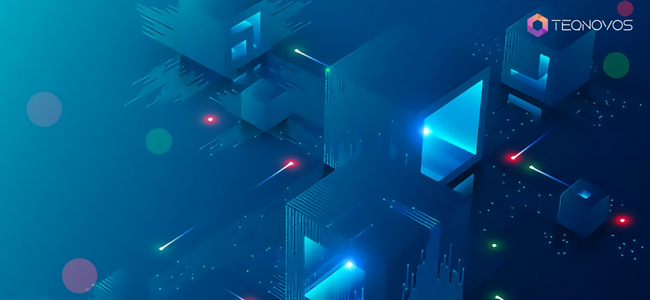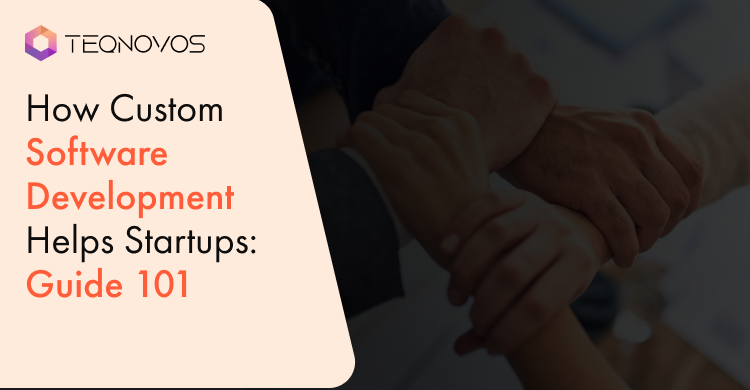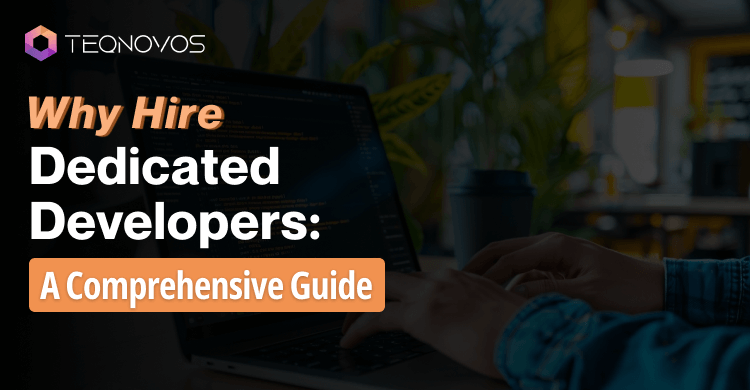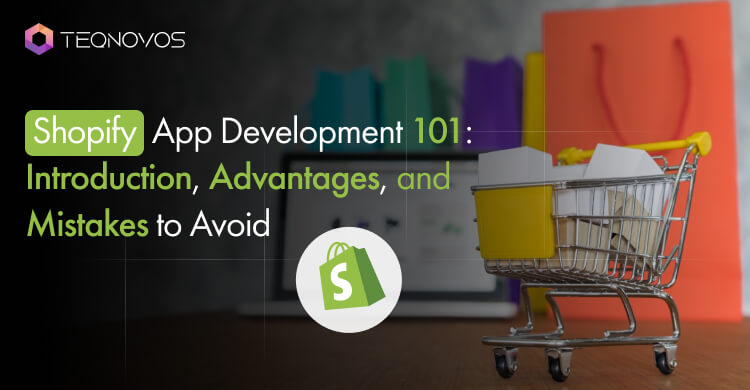7 Best Blockchain Platforms to Build dApps in 2023
While developing a dApp, one of the biggest roadblocks that you may come across is the selection of a blockchain platform. As there are so many blockchain platforms available, it’s hard to pick the most suitable one for your dApp. However, you don’t need to worry as we will narrow down your choices to the 7 best blockchain platforms for dApp development.
With blockchain emerging as one of the most influential technologies of the 21st century, its real-world applications, including dApps, have become a major center of attention.
dApp or decentralized application is a significant breakthrough that has become a reality all thanks to blockchain. Unlike conventional applications, no single entity has complete control over a dApp. Also, since the back-end code of a dApp runs on a blockchain instead of a server, users do not have to share their personal information to access dApps.
There are also several other benefits of dApps with the most prominent ones listed below:
- App makers cannot own and exploit user data.
- dApps are highly secure against cyber threats as it is extremely difficult to attack a blockchain network and steal data.
- The downtime is almost zero.
- It’s easy to scale dApps.
- dApps support cryptocurrencies for making payments.
One key reason behind the growing interest of organizations in dApp development is that it is possible to make money with dApps by creating a sustainable business model.
If you want to develop a dApp, you need to choose an appropriate blockchain platform for the same. Here, we are going to provide an overview of the best blockchain platforms or networks to build dApps. But before that, let’s take a quick look at the types of dApps that you can develop.
Types of dApps
Based on the platforms on which a dApp runs, we can classify dApps into the following two categories:
1. Native dApps
Native dApps are the ones developed specifically for Android or iOS platforms. Like conventional mobile apps, users will need to download native dApps from official app stores to use them.
2. Web3 dApps
A web3 dApp is simply accessible through any web browser. The best thing about web3 dApps is that you do not have to install them as you can access them directly through a web browser. Moreover, you can use any device that supports a web browser to access Web3 dApps.
Most Popular Blockchain Platforms for dApp Development
Here is a curated list of the best blockchain platforms that are suitable for creating dApps:
1. Ethereum
Developer(s): Ethereum Foundation
Release Year: 2015
Consensus Algorithm: Proof-of-Work (PoW)
Ethereum is the most popular blockchain platform that was originally developed by Vitalik Buterin and Gavin Wood. It acts as an ecosystem that facilitates the development and deployment of dApps, smart contracts, NFTs, and cryptocurrencies.
The blockchain has its native cryptocurrency which goes by the name Ether. Moreover, Ether is the second largest cryptocurrency after Bitcoin in terms of market capitalization. Developers need Ether to pay for the computational services they get on the Ethereum platform. Also, Solidity is the primary programming language of Ethereum that developers can use to create dApps and smart contracts.
Pros
- It is the most popular blockchain for developing and running smart contracts and dApps.
- You can add private transaction layers to the Ethereum blockchain to limit the access of transaction records to selected network participants.
- With Ethereum, you can tokenize your digital assets with ease.
- The Ethereum community is massive and highly active. Therefore, you can share your development issues with the community members and get help quickly.
Cons
- Ethereum has a low transaction speed that goes up to 30 transactions per second (TPS).
- Due to the sheer number of users, network congestion is a major issue in the Ethereum blockchain.
- You need to pay gas fees for performing different functions in the Ethereum blockchain, and the gas fee is quite high.
2. Solana
Developer(s): Solana Labs & Solana Foundation
Release Year: 2020
Consensus Algorithm: Proof-of-History (PoW)
Solana is a public blockchain that has become an extremely popular choice for developing dApps. Anatoly Yakovenko presented the whitepaper of the Solana blockchain in 2017. The blockchain became active in 2020, and thus it is one of the newest blockchains.
Solana developers need to have knowledge of Rust to create smart contract programs and dApps. However, it supports other programming languages as well, including C and C++. One of the biggest highlights of the Solana blockchain is that it uses its own proof-of-history (PoH) consensus algorithm to achieve high transaction speed.
Pros
- Solana’s transaction speed goes up to 50,000 transactions per second.
- Solana makes a great choice if you want to create an NFT marketplace and host scalable applications.
- The network fee is significantly low.
Cons
- Solana is a new blockchain and thus its stability is still under question.
- The community around Solana development is limited.
3. Ripple
Developer(s): Ripple Labs Inc.
Release Year: 2012
Consensus Algorithm: Ripple Protocol Consensus Algorithm (RPCA)
Ripple is a blockchain network and protocol designed specifically for facilitating money transfers. Arthur Britto, David Schwartz, and Ryan Fugger developed Ripple and released it for the first time in 2012. However, it wasn’t until 2018 that the first stable version of Ripple launched.
As Ripple specifically facilitates payments, including cross-border payments, it is suitable for creating DeFi (decentralized finance) applications.
Pros
- The transaction speed of Ripple is 1500 TPS, which is much higher than that of Ethereum.
- Fees charged for processing a transaction is extremely low.
- Many large financial institutions are using the Ripple network to process transactions.
Cons
- The consensus protocol used by Ripple offers only moderate security.
- Ripple is decentralized to a less extent as its validators are pre-selected.
4. Cardano
Developer(s): Cardano Foundation, IOHK, EMURGO
Release Year: 2017
Consensus Algorithm: Proof-of-Stake (PoS)
Cardano is yet another popular blockchain platform for building dApps. Developed by Ethereum’s co-founder, Charles Hoskinson, Cardano aims to offer better scalability and interoperability than many other blockchain platforms. The native cryptocurrency of Cardano is ADA.
In 2021, the developers of Cardano launched new updates to add support for smart contracts. Due to the smart contracts functionality, Cardano has now become an appropriate platform for building a wide range of dApps. Moreover, it supports decentralized finance services.
Pros
- Compared to other popular blockchain platforms, Cardano stores much more details of a transaction.
- It charges a low transaction fee.
- Cardano utilizes a proof-of-stake (PoS) algorithm-based consensus mechanism, known as Ouroboros. This consensus protocol drastically reduces the computing power required to validate transactions. Thus, Cardano is an eco-friendly or green blockchain.
Cons
- Its transaction speed is 250 TPS, which is low compared to many other blockchain platforms on this list.
- Cardano’s user base is small.
5. Tron
Developer(s): TRON-Foundation Ltd.
Release Year: 2018
Consensus Algorithm: Delegated Proof-of-Stake (DPoS)
If you are interested in creating cost-effective dApps, Tron is one of the best blockchain networks that you need to consider. It allows you to use smart contracts to develop fully-functional and feature-rich decentralized applications. Released in 2018, the Tron blockchain platform utilizes delegated proof-of-stake (DPoS) consensus algorithm to process and record transactions on the network.
One plus point of developing dApps with Tron is that it supports several popular programming languages, including Java, C, C++, Scala, and Go. So, having knowledge of any of these programming languages will make it possible for you to develop and deploy apps on the Tron blockchain.
Pros
- Tron can process up to 2000 transactions per second.
- Low transaction fees.
- You can mint and deploy NFTs on the Tron blockchain.
Cons
- It is a relatively new blockchain.
- The community of Tron developers is small.
6. Corda
Developer(s): R3
Release Year: 2015
Consensus Algorithm: Byzantine Fault Tolerant Algorithms
Corda is an open-source blockchain platform that is steadily becoming a preferred choice among blockchain developers for building decentralized applications. You can use the Corda blockchain to create scalable dApps.
One particular thing to notice about Corda is that it is a private or permissioned blockchain. Unlike public blockchains that share transaction data with the entire network, Corda being a private blockchain limits the access of transaction data only to the concerned entities. Thus, it is utterly suitable for building dApps for B2B businesses.
Pros
- You can choose Corda to develop dApps that ensure complete data privacy.
- It is possible to integrate Corda with other tools and platforms, including SQL Server, Azure SQL, PostgreSQL, and JVM (Java Virtual Machine).
- Corda claims to have a high transaction speed of up to 20,000 TPS.
Cons
- Deploying apps on Corda is quite costly.
7. Polygon
Developer(s): Polygon Technology
Release Year: 2020
Consensus Algorithm: Proof-of-Stake (PoS)
If you like the security and interoperability offered by Ethereum but aren’t sure to use it due to the lack of scalability and low transaction speed, you should consider using Polygon blockchain. Polygon is a Level 2 blockchain that improves the performance and scalability of the Ethereum blockchain.
Polygon is capable of scaling the Ethereum blockchain and creating a multi-chain blockchain system. You can use Polygon to create dApps that are user-friendly, scalable, and secure. Moreover, it allows developers to create and deploy Ethereum-based projects at lower costs while ensuring much better transaction speed.
Pros
- It is quite easy for Ethereum developers to shift to Polygon as it supports most Ethereum development tools, such as Truffle and Web3js.
- You can simply move smart contracts from Ethereum to Polygon without making any modifications to the smart contracts.
- High transaction speed makes Polygon an ideal choice for developing decentralized finance applications.
Cons
- The existence of Polygon is largely dependent on Ethereum.
- The release of Ethereum 2.0 can severely affect the development of Polygon as Ethereum 2.0 aims to eliminate the shortcomings of the Ethereum blockchain. Thus, the demand for Polygon may go down in the future.
Which Blockchain Platform to Choose for Your dApp?
While picking a blockchain network or platform for your dApp, you need to choose one that best suits your requirements.
Here are some questions that you need to ask yourself so that your priorities become clear and you can find the best blockchain platform for your dApp:
- What is the budget for your dApp development project?
- Do you need to use a private blockchain or a public blockchain?
- How much do you want to scale your dApp in the future?
- What features exactly do you want in your dApp?
It’s quite essential to consider all the key requirements of your dApp so that it becomes easy to choose the most appropriate blockchain platform for developing your dApp.
For instance, if you want to build a dApp to support your B2C business, you should go for a public blockchain. Similarly, if you want your dApp to process transactions as quickly as possible, you can choose blockchains like Solana and Corda.
In case you are unable to figure out what blockchain network you should use for your dApp, it’s best to connect yourself with a leading blockchain development company like Teqnovos.
At Teqnovos, we have a dedicated team of blockchain development professionals who can provide expert advice for your dApp development project.
To Wrap it Up
The popularity of dApps is increasing day by day. Many organizations are interested in developing dApps to strengthen their business and unlock new business opportunities.
Before starting the development of a dApp, you need to choose a suitable blockchain platform. As there are hundreds of blockchains existing right now, picking the right one for your project can be a little tricky.
So, we have compiled a list of the best blockchain platforms for building dApps to make it easy for you to pick the right one for your project. Just go through the details of each blockchain network that we have mentioned above to identify the one that best matches your dApp project’s requirements. Good luck!
FAQs
- What are the top blockchain platforms?
While there are numerous blockchain platforms out there, the best ones among them are as follows:
- Cardano
- Corda
- Ethereum
- Polygon
- Ripple
- Solana
- Tron
- Which is the largest blockchain in the world?
Ethereum is currently the largest blockchain that is a go-to choice for developing smart contracts, dApps, NFTs, and cryptocurrencies.
- Which blockchain network is the fastest?
Solana is a public blockchain that is known worldwide for its exceptional transaction processing speed which is about 50,000 transactions per second.
















